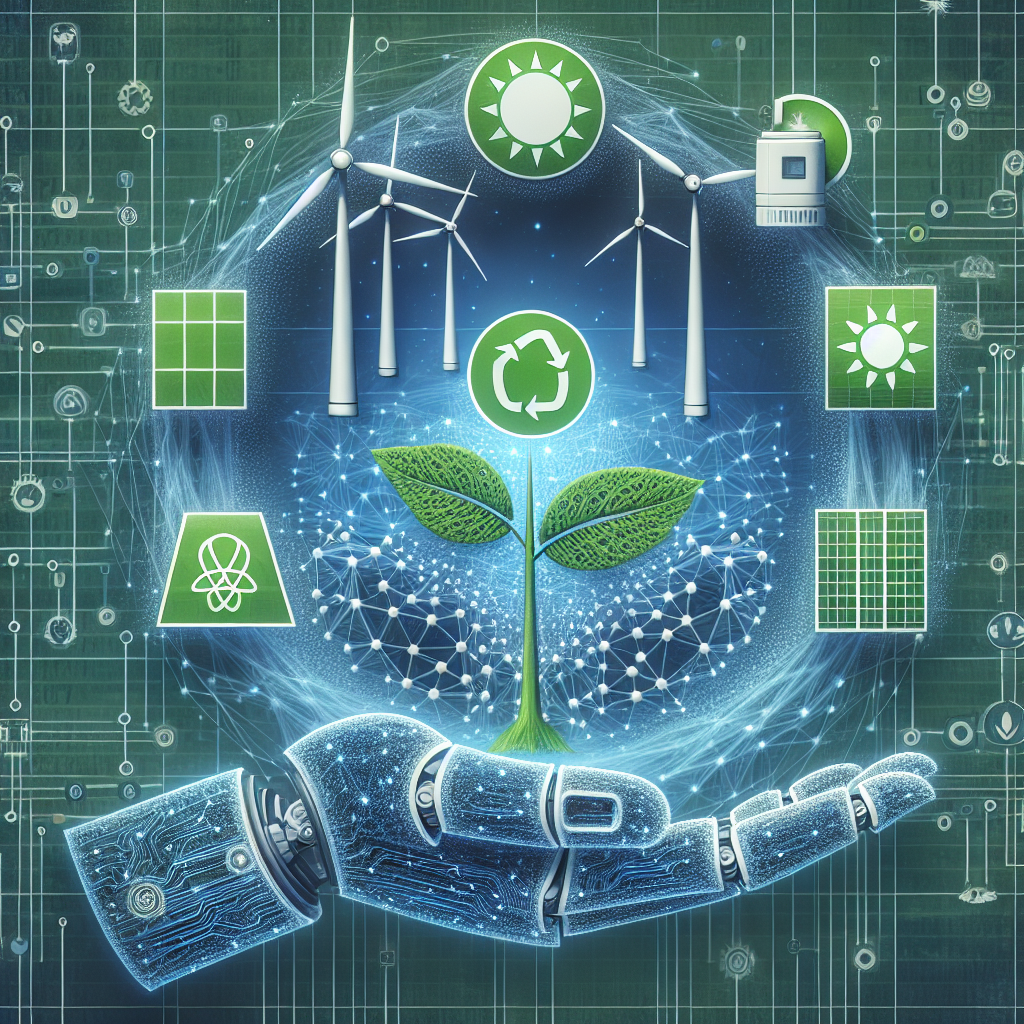The world is facing a pressing need for sustainable energy solutions to combat climate change and reduce reliance on non-renewable resources. One of the key challenges in transitioning to a greener energy system is the storage of renewable energy, such as solar and wind power, which can be intermittent and unpredictable. This is where artificial intelligence (AI) can play a crucial role in optimizing energy storage systems for maximum efficiency and sustainability.
AI solutions for sustainable energy storage involve using advanced algorithms and machine learning techniques to analyze data, predict energy demand and supply, and optimize the operation of energy storage systems. By leveraging AI, energy storage systems can be more effectively managed, reducing waste and improving overall system performance.
One of the key benefits of AI in energy storage is its ability to forecast energy demand and supply patterns, allowing for better planning and optimization of energy storage systems. For example, AI algorithms can analyze historical energy consumption data, weather patterns, and other relevant factors to predict when and how much energy will be needed in the future. This information can then be used to optimize the charging and discharging of energy storage systems, ensuring that energy is available when it is most needed.
Another advantage of AI in energy storage is its ability to optimize the operation of energy storage systems in real-time. AI algorithms can continuously monitor energy supply and demand, weather conditions, and other variables to adjust the operation of energy storage systems for maximum efficiency. This can help reduce energy waste, lower costs, and extend the lifespan of energy storage systems.
AI can also be used to optimize the design and placement of energy storage systems. By analyzing factors such as energy demand patterns, grid infrastructure, and regulatory requirements, AI algorithms can help determine the most effective locations and configurations for energy storage systems. This can help maximize the impact of energy storage on the grid and improve overall system reliability and resilience.
In addition to optimizing energy storage systems, AI can also help integrate renewable energy sources into the grid more effectively. By analyzing data on solar and wind power generation, energy demand, and grid conditions, AI algorithms can help coordinate the output of renewable energy sources with the operation of energy storage systems. This can help reduce reliance on fossil fuels, lower carbon emissions, and increase the overall sustainability of the energy system.
Overall, AI solutions for sustainable energy storage have the potential to revolutionize the way we generate, store, and use energy. By leveraging advanced algorithms and machine learning techniques, we can optimize energy storage systems for maximum efficiency, reduce waste, and accelerate the transition to a greener energy future.
FAQs:
Q: How does AI help optimize energy storage systems?
A: AI algorithms can analyze data on energy demand and supply, weather patterns, and other relevant factors to predict when and how much energy will be needed in the future. This information can then be used to optimize the charging and discharging of energy storage systems for maximum efficiency.
Q: What are the benefits of using AI in energy storage?
A: AI can help forecast energy demand and supply patterns, optimize the operation of energy storage systems in real-time, and improve the design and placement of energy storage systems. This can help reduce waste, lower costs, and increase the overall sustainability of the energy system.
Q: How can AI help integrate renewable energy sources into the grid?
A: By analyzing data on solar and wind power generation, energy demand, and grid conditions, AI algorithms can help coordinate the output of renewable energy sources with the operation of energy storage systems. This can help reduce reliance on fossil fuels and lower carbon emissions.
Q: What are the key challenges in implementing AI solutions for sustainable energy storage?
A: Some of the key challenges include data quality and availability, regulatory barriers, and the need for skilled personnel to develop and implement AI algorithms. Overcoming these challenges will be crucial to realizing the full potential of AI in energy storage.
Q: What are some examples of AI solutions for sustainable energy storage?
A: Examples include using AI algorithms to forecast energy demand, optimize the operation of energy storage systems, and integrate renewable energy sources into the grid. These solutions can help improve the efficiency, reliability, and sustainability of the energy system.

